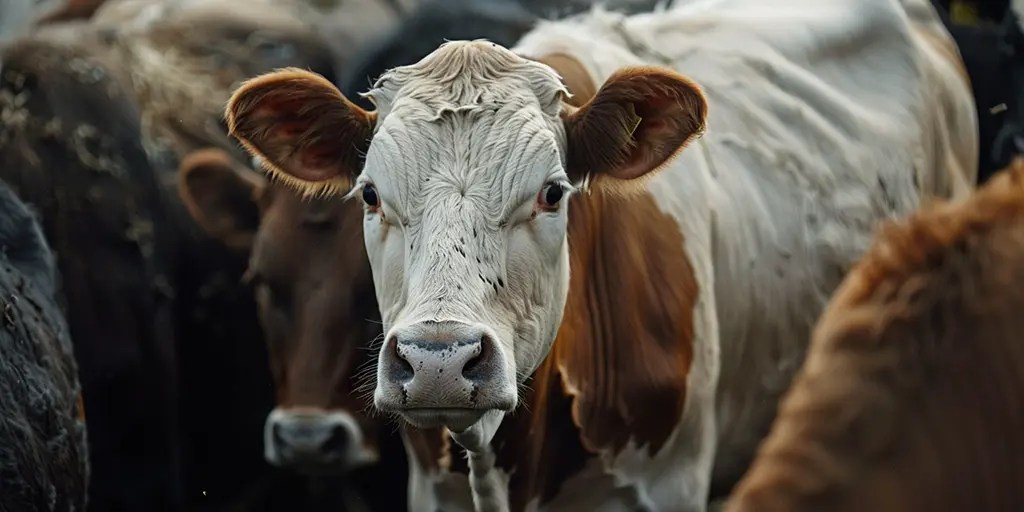From ClimateREALISM
By Linnea Lueken
A recent article at Vox, titled “Scientists are measuring burps and farts. It could help save the planet,” claims that methane produced by farm animals is causing dangerous global warming, and thus that reducing agriculture-related methane is critical to limiting warming to the 1.5°C target established for political ends in the 2015 Paris climate agreement. This is false. Animal related methane is not a threat to the environment, contributing little if anything to global warming.
The article primarily references research efforts by scientists in Columbia who measured the amount of methane different farm animals produce in their burps and gas depending on what kind of forage they eat, in order to determine the feed that will produce the least methane. Animals are placed in chambers and their emissions are monitored.
Vox writes:
These chambers are part of a multiyear project to lower the amount of methane produced by farm animals. This is important. Methane is a potent greenhouse gas, responsible for roughly 20 to 30 percent of global warming since the Industrial Revolution. The bulk of global methane emissions stem from human activities, and the largest single source among them is agriculture — namely, the burps of ruminant animals such as cattle, goats, and sheep, as well as their manure.
Vox cites the International Energy Agency, not a scientific organization by the way, to claim that most methane emissions are due to human activity. This is not an established fact and is likely false. Multiple peer reviewed research papers, here and here, for example have found that natural sources of methane, such as but not limited to releases from wetlands, and other agricultural sources, such a emissions from rice paddies, are the largest sources of methane in the atmosphere. Indeed, recent research indicates that human methane emissions, from oil and gas operations, for example, have declined in recent decades even as production has increased and atmospheric methane in general has grown – suggesting an increase from natural or other human sources
Although methane is, as Vox says, a “powerful” greenhouse gas with much more warming potential per molecule than carbon dioxide, it has a short atmospheric life as so plays a relatively minor role in the atmosphere when it comes to long-term warming. NASA, one source for Vox’s story admits as much. What Vox and NASA neglect to mention, however, is that methane’s absorption bands occur at wavelengths that the most powerful and abundant greenhouse gas, water vapor, making up as much of 97 percent of the greenhouse gasses in the atmosphere, already covers. Methane, a small trace gas, is a very minor player despite alarmism surrounding it.
With that in mind, it is more useful to look at greenhouse gas emissions in general. Data from the U.S. Environmental Protection Agency (EPA) focusing on the United States (since the nation has the best and most easily available data) clearly show that livestock emissions are a small part of human emissions overall. (See figure below)
Vox targets beef production in particular, writing:
“Without addressing emissions from the food sector, it’s impossible to limit global warming to 1.5 degrees Celsius, beyond which climate change will be catastrophic. Lowering meat (and especially beef) consumption is probably the most important part of that effort, but it’s an uphill battle as meat consumption is projected to rise globally over the next few years.”
But beef production only represents 2 percent of all U.S. greenhouse gas emissions, and is beaten out in emissions by crop agriculture, which contributes 10.2 percent of U.S. emissions. These numbers are likely similar in most western countries. Climate Realism has covered these facts multiple times before, here, here, and here, for example. The facts haven’t changed, yet climate alarmists arguments are never revised or improved.
That data supports research done by Prof. Habil Wilhelm Windisch, Ph.D., of the Technical University of Munich, which indicates ruminants’ contributions to greenhouse gas emissions are exaggerated by climate alarmist groups and media outlets like Vox, by a factor of 3 to 4 at minimum.
Further, methane emissions have been steadily dropping in the United States since the 1990s, according to data from the EPA. (See figure below)

It may be worthwhile to run the “livestock gas chamber” experiments for data collection purposes, or to learn more about ruminant digestion and how to improve the efficient digestion of foods livestock consume. Ultimately, though, it is a waste of time and money if stopping the gradual warming of the planet is the goal. All it is likely to accomplish is to drive additional research dollars to scholars who attack modern, high-yield, fossil-fuel-intensive, agriculture, while making meat more expensive, making it harder for the world’s poorest people to afford it. Vox’s own comments clearly indicate they support reducing meat consumption and its projected increase in the developing world – in short, the authors assumed from the outset that livestock methane emissions were contributing to dangerous climate change, which is, in fact, something they should have to prove. As such Vox is willing to mislead and ignore relevant data to make the case for reducing meat consumption as critical to fighting what the authors perceive as dangerous climate change.
Related


